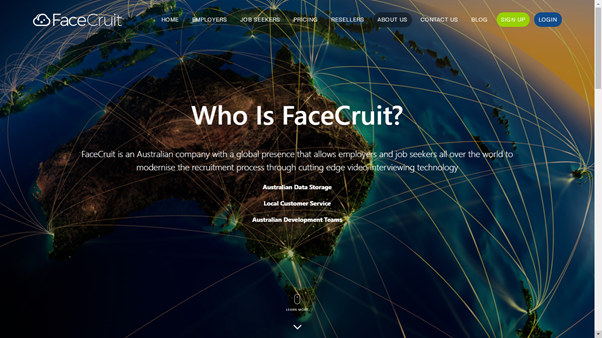Beware! You could be held accountable. Where is your candidates digital information being stored?
What is Cloud?
Cloud is an off-site, online space where data is stored or applications are run. It offers easy access to information while eliminating the threat of onsite dangers such as natural disasters and power outages. It enables multiple partners to access information despite their location. Australian businesses can be enticed by the cheaper option of using offshore clouds. However, there are potential risks and legal ramifications when another country is hosting your cloud.
Legal Ramifications of Offshore Cloud Hosting
According to Australia’s privacy laws, you are compelled to notify all of your clients about what you do with their data and also to protect this data from access by others. Once your client’s data is stored in a cloud, you are legally obliged to ensure its protection. You can be fined under Australian legislation pertaining to privacy breaches, of up to $1.7 million for companies.
When your data is in a cloud that is hosted offshore, it is ‘resident’ in that particular country and is susceptible to that country’s privacy and confidentiality laws. This may significantly differ from those of Australia. Because of this, your company’s data, and any of your client’s data that you store, can be potentially jeopardised by unauthorised access. Not all Australian privacy laws can offer direct protection from the ramifications of foreign legislations.
Many cloud providers have a significant presence in the USA. Under the USA’s PATRIOT Act, such cloud hosting companies might not only be forced to hand over hosted data to the government but also to do so secretly. This is obviously at odds with the requirements placed on Australian companies by Australian privacy law.
In addition to incompatible laws, some lower cost offshore locations face different challenges. Corruption and organised crime in low cost countries can also lead to more prevalent data theft. Some locations can also be subject to severe weather or climate threats. While these threats do not pose a data breach problem they can result in data loss or periods of lengthy downtime.In any case it’s important to understand and consider exactly where your data will be hosted when you engage a cloud provider.
Benefits of staying in Australia
The benefits of onshore hosting are extensive. Australia is a stable country with technology and laws that can safeguard your data as well as your clients’. Australia is a safe location as it is politically, economically, financially and geologically stable and familiar. Keeping your cloud hosting onshore will help guarantee the privacy and protection of your data. Not only will your data be in safer hands, it will be bound by the Australian Privacy Act. It will be hosted by a company that abides by the same legislation as you. It is for this reason that, in the cloud era where network borders are disappearing, many large Australian companies have rigid policies mandating that all company data must remain on Australian soil.
Example – FaceCruit
FaceCruit a leading Australian video interviewing software company have taken measures to make sure that they have their data stored in Australia and all development local. They also provide all their sales and support in Australia.
Nick Thompson ( Managing Director) said “Why take unnecessary risks to save a couple of cents. Also we get local support to fix any issues that arise”

